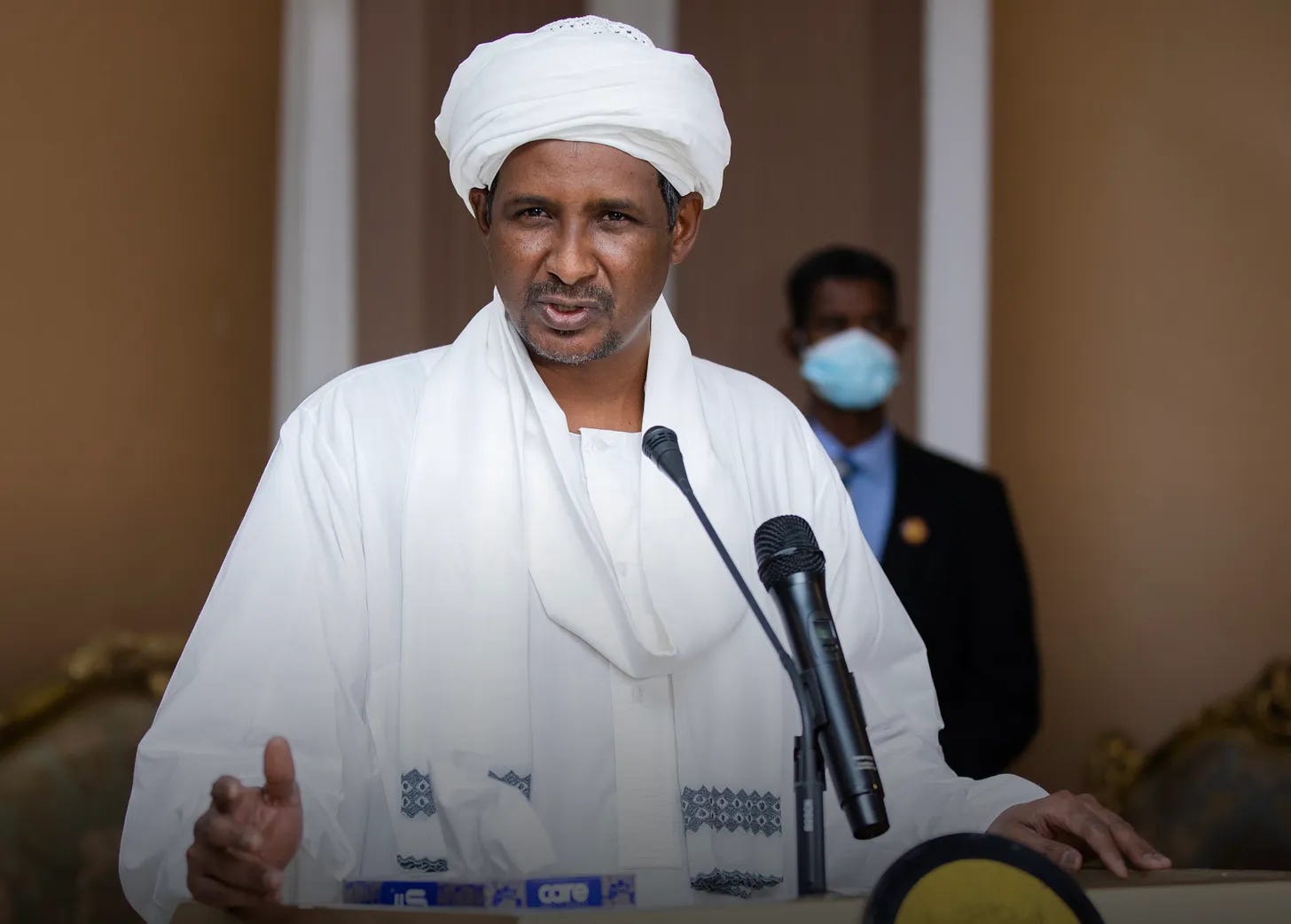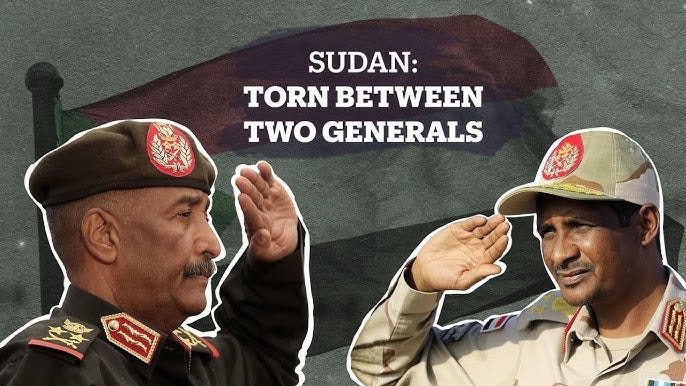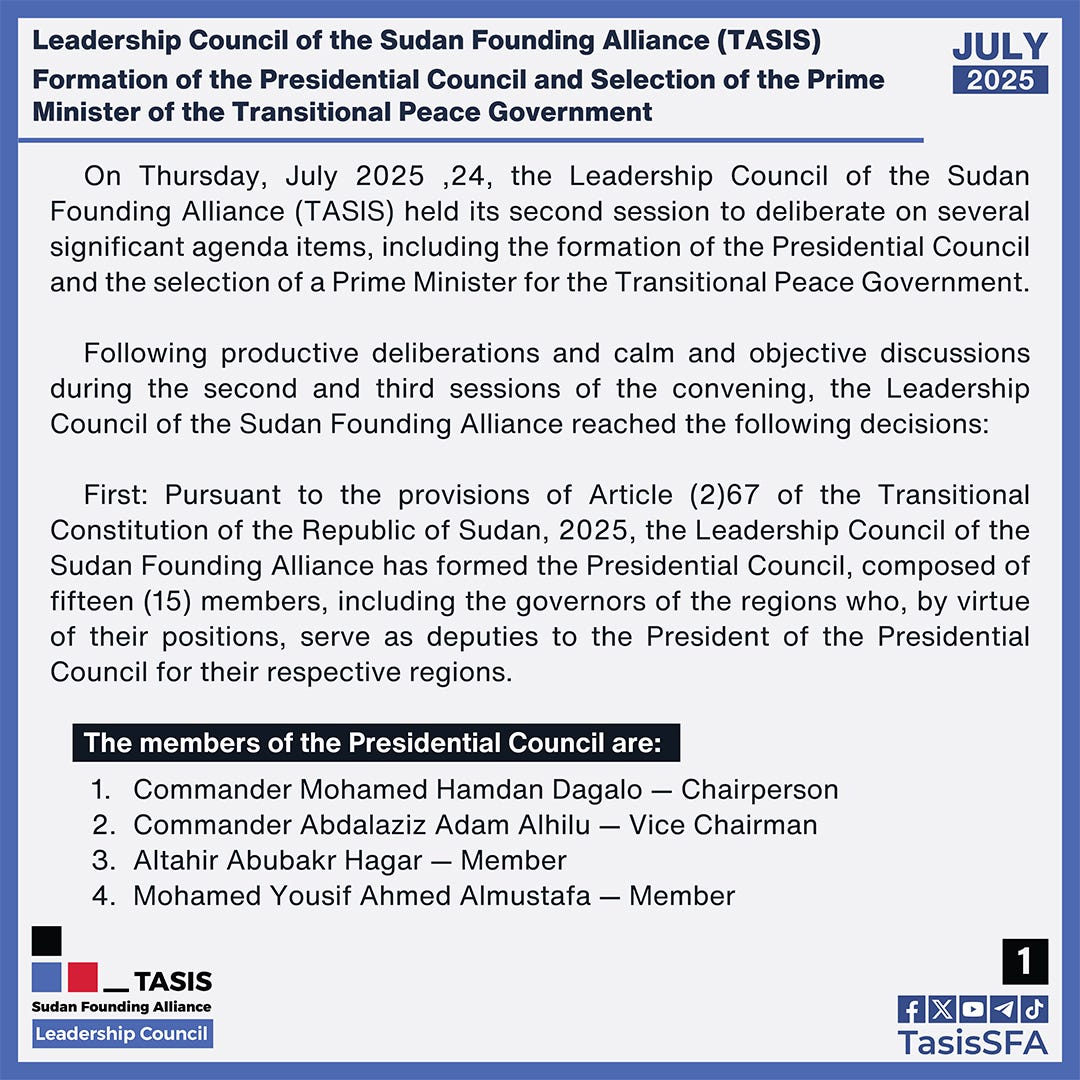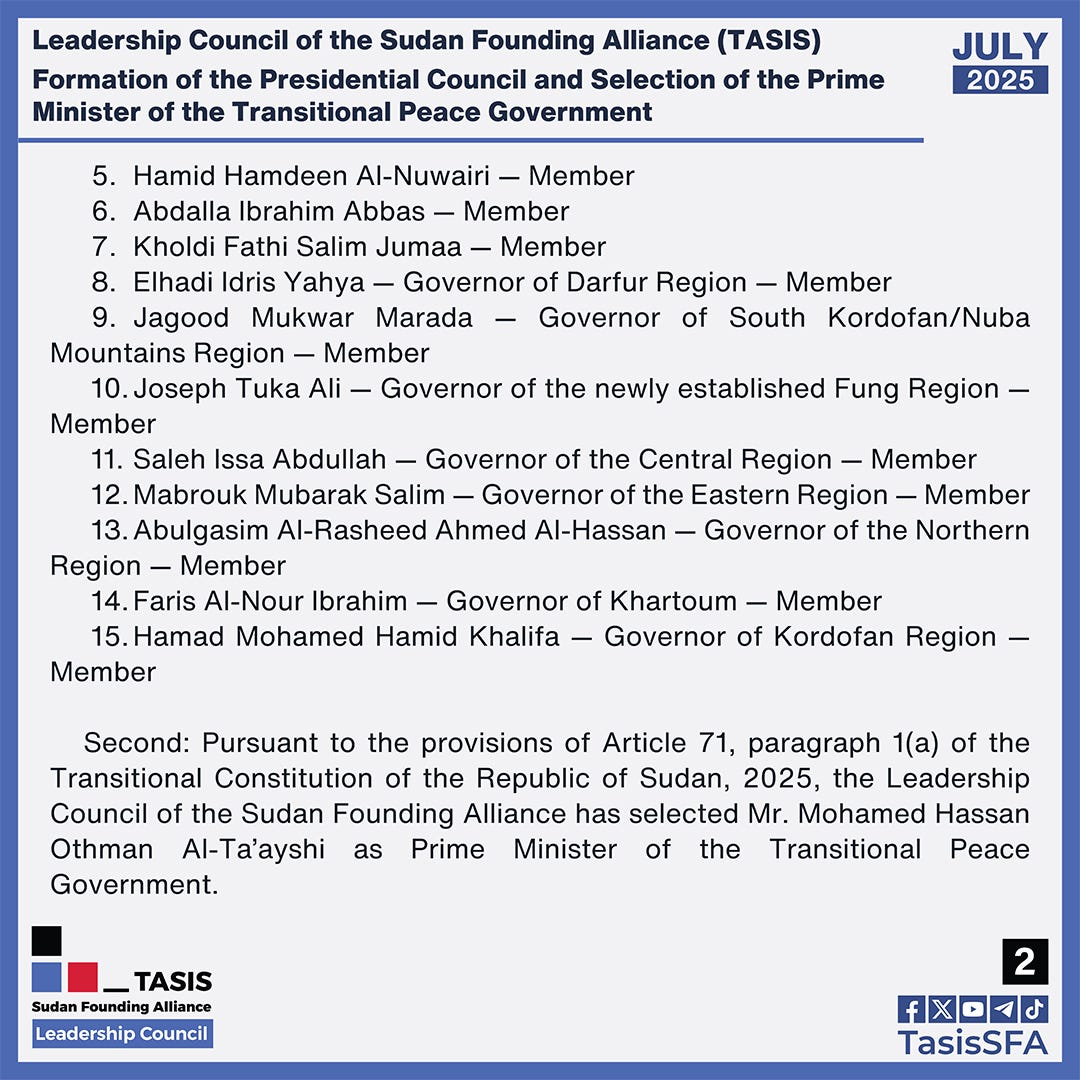Hemedti named president of RSF-led presidential council
Parallel government formation deepens Sudan’s fragmentation
The Sudan Founding Alliance, a coalition of Rapid Support Forces (RSF) allies, former rebel groups, and pro-RSF political figures – commonly referred to as Taasis – announced on Saturday the formation of a parallel government intended to rival the military-led administration in Port Sudan.
The new structure, led by RSF commander Mohamed Hamdan Daglo “Hemedti”, includes a 15-member Presidential Council and a civilian Prime Minister, former Sovereignty Council member Mohamed Hassan Al-Ta’aishi.
The announcement, made by the alliance’s spokesman Alaa Al-Naqd from RSF-held South Darfur capital Nyala, comes amid increasing RSF territorial losses across central Sudan and intensifying SAF air operations in Darfur and Kordofan. It marks a significant escalation in the RSF’s strategy – pivoting from armed dominance to governance mimicry, aimed at reinforcing its claim to national authority.
While the alliance did not confirm a formal seat of government, the announcement’s location in Nyala suggests the city is intended as its de facto capital. However, SAF maintains aerial superiority over the region, and Nyala itself remains within striking range of SAF drones and fixed-wing aircraft, raising doubts about the council’s ability to operate securely or consistently.
The “Presidential Council of the Transitional Peace Government” structurally mirrors the Transitional Sovereignty Council (TSC), currently operating from Port Sudan under SAF commander-in-chief Abdelfattah Al-Burhan. But unlike the TSC’s military-civilian composition structure, the RSF-backed council is dominated by armed group leaders and allied regional figures.
Hemedti assumes the presidency, while SPLM-N leader Abdelaziz Adam al-Hilu is named the vice president. The inclusion of Al-Hilu, who retains significant control over the Nuba Mountains, signals an attempt to forge a broader anti-SAF military and political coalition.
Leaders of neutral Darfur rebel movements Al-Hadi Idris and Al-Tahir Hajar, both ousted from the Port Sudan-based transitional council last year for refusing to align with the SAF, also joined the council.
The group also divided the country into several regional governorates, naming Al-Hadi Iddris as governor of Darfur region. That position is currently held by SLM-MM leader Minni Arko Minnawi.
The 15-member council includes:
Mohamed Hamdan Daglo (President)
Abdelaziz Adam Al-Hilu (Vice President)
Al-Tahir Abu Bakr Hajar (member)
Mohamed Youssef Ahmed Al-Mustafa (member)
Hamid Hamdeen Nuweiri (member)
Abdullah Ibrahim Abbas (member)
Kholdi Fathi Salem (member)
Hadi Idris Yahya – Governor of Darfur (member)
Jagod Mekwar Murada – Nuba Mountains regional governor (member)
Joseph Tukka Ali – Funj regional governor (member)
Saleh Isa Abdullah – Central Sudan governor (member)
Mabrouk Mubarak Salem – Eastern Sudan governor (member)
Abul Qasim Al-Rashid Ahmed – Northern Sudan governor (member)
Faris Al-Noor Ibrahim – Khartoum governor (member)
Hamad Mohamed Hamid – Kordofan (member)
Most of the appointees are tied either to former rebel groups or pro-RSF tribal and regional networks. Notably, Saleh Isa, appointed governor of the central Sudan region, is related to slain RSF commander Abdelrahman Al-Bishi, killed by the Sudanese military during airstrikes in Sennar in mid-2024.
The RSF’s establishment of an alternative government comes at a time when its military position is weakening – particularly following SAF’s offensives that cleared the entire central Sudan, including then RSF strongholds Khartoum and Al-Jazirah states.
The shift toward political symbolism appears to be an attempt to compensate for battlefield setbacks – exacerbated by internal divisions and the absence of effective central command – by asserting state-like authority in Sudan’s west and south.
This move also preempts discussions among Sudan’s civilian opposition and diaspora regarding the creation of a government-in-exile, intended to represent anti-war, non-military Sudanese interests. Instead, the RSF has positioned itself as both a military power and a national government claimant – using governance to rebrand itself as a state actor rather than a paramilitary faction.
It further dims prospects for peace talks and a negotiated settlement. By institutionalizing its authority and appointing a rival presidential council, the RSF has reinforced its refusal to recognize the Port Sudan-based military leadership, entrenching the political divide.
The SAF has always viewed discussions to form a parallel government as illegitimate and destabilizing, making reconciliation even more unlikely. With both sides doubling down –each accusing the other of rejecting dialogue and fueling the war – the chances of a ceasefire or mediated political process have grown increasingly remote, pushing Sudan deeper into prolonged conflict and fragmentation.
The alliance’s government structure closely replicates that of the TSC but adds one extra member – likely a symbolic assertion of “greater” representation. While the inclusion of Al-Ta’aishi and Al-Hilu lends political weight, the council’s foundation remains military. Its legitimacy rests on territorial control, not democratic process, and its functionality is unclear given SAF’s aerial supremacy and the fragmentation of infrastructure in Darfur and Kordofan.
Heightened risk of fragmentation
The creation of the RSF-led government intensifies the risk of Sudan’s partition along historical fault lines – between the central riverine elite and the marginalized peripheries of Darfur, the Nuba Mountains, and Blue Nile.
Anchoring executive authority in Nyala, while SAF consolidates its hold on Port Sudan, formalizes the geographic and political divide already entrenched by more than two years of civil war.
While there was no official statement from the SAF-led government, Darfur Governor and head of the Sudan Liberation Army faction Minni Minnawi, dismissed the RSF-backed government as a hollow political maneuver.
In a brief statement released on his official Facebook page, Minnawi accused the RSF of using the announcement to deflect responsibility for atrocities committed during the conflict.
“I listened to the announcement of the so-called ‘Tassis’ government and found nothing new worth commenting on — except that the Rapid Support Forces militia is now sharing the crimes and violations it committed equally with its allies,” Minnawi wrote.





